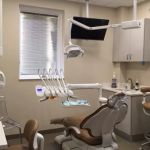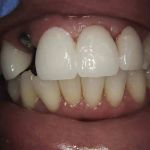Oral ulcers are a common concern for many individuals, causing discomfort and irritation in everyday activities like eating, talking, and brushing teeth. Understanding why these ulcers lead to pain or a burning sensation is crucial for effective management and relief. Oral health problems, including ulcers, are not just a temporary annoyance; they can signal underlying health issues that need attention. At Dentistry Toothtruth, we explore these intricacies to provide our readers a comprehensive guide to understanding oral ulcers' pain-causing mechanisms.
Understanding Oral Ulcers
Oral ulcers, often known colloquially as canker sores, are open lesions that occur on the mucous membrane inside the mouth. These ulcers vary in size and severity, presenting a range of challenges for those affected. Typically, they are caused by minor injury such as accidentally biting the cheek, stress, hormonal changes, or even nutritional deficiencies. However, the precise causes can be multifactorial. Distinguishing between common causes and identifying specific culprits is essential for effective prevention and treatment.
The Pain Mechanism
The pain or burning sensation associated with oral ulcers primarily stems from the exposure of nerve endings in the affected area. When an ulcer forms, the protective layer of tissue is lost, leaving the sensitive nerve endings vulnerable to external stimuli like food, drinks, and movement. This results in the characteristic sharp pain or burning sensation experienced by ulcer sufferers. Thermal and chemical triggers, like spicy or hot foods, further exacerbate this discomfort, explaining why certain dietary adjustments can offer temporary relief.
Inflammation and Its Effects
Inflammation is the body's natural response to injury and, in the case of oral ulcers, plays a significant role in the pain experience. The body's immune response results in localized swelling, redness, and increased sensitivity in the ulcerated area. This inflammation not only intensifies the pain but may also prolong the healing process if not managed properly. Anti-inflammatory medications and topical treatments often help to alleviate these symptoms by curtailing the body's inflammatory response at the ulcer site.
The Role of Stress and Hormones
Beyond physical causes, psychological factors such as stress and hormonal imbalances are significant contributors to the prevalence and severity of oral ulcers. Stress can compromise the immune system, reducing the body's ability to ward off infections and heal efficiently. Simultaneously, hormonal fluctuations, particularly in women, can trigger or worsen episodes of ulceration, often coinciding with menstrual cycles or pregnancy. Managing stress through lifestyle changes and monitoring hormonal levels is essential for those frequently afflicted by oral ulcers.
Nutritional Deficiencies
Deficiencies in essential nutrients like vitamin B12, zinc, iron, and folic acid can lead to the development of oral ulcers and amplify their painful symptoms. These deficiencies weaken the mucosal lining of the mouth, making it more susceptible to damage and prolonging healing. Ensuring a balanced diet rich in these nutrients is vital in preventing recurrent ulcers and promoting overall oral health. In some cases, supplements may be necessary, and professional guidance from healthcare providers can help optimize individual nutritional intake.
Conclusion and Recommendations
Understanding why oral ulcers cause pain or a burning sensation allows individuals to take proactive steps in managing this common but distressing condition. By identifying and addressing the root causes—whether it be nerve exposure, inflammation, stress, hormonal changes, or nutritional deficiencies—individuals can significantly reduce the frequency and severity of ulcer episodes. We recommend consulting with healthcare professionals at Dentistry Toothtruth for personalized advice and treatment options. Adopting a holistic approach that encompasses dietary adjustments, stress management, and proper oral hygiene can lead to substantial improvements in comfort and oral health.




 Great Expressions Dental Centers - Peachtree City4.0 (406 review)
Great Expressions Dental Centers - Peachtree City4.0 (406 review) The Dentists, LLC5.0 (180 review)
The Dentists, LLC5.0 (180 review) iDental3.0 (3 review)
iDental3.0 (3 review) Ivy Dental of Fleetwood4.0 (9 review)
Ivy Dental of Fleetwood4.0 (9 review) Smile Dental of New Rochelle5.0 (242 review)
Smile Dental of New Rochelle5.0 (242 review) Dental Town-Pulaski0.0 (0 review)
Dental Town-Pulaski0.0 (0 review) The Importance of Oral Health Education During Pregnancy for a Healthy Pregnancy
The Importance of Oral Health Education During Pregnancy for a Healthy Pregnancy Best Tips for Brushing Your Teeth Properly for Healthy Gums: Essential Techniques for Oral Health
Best Tips for Brushing Your Teeth Properly for Healthy Gums: Essential Techniques for Oral Health Why Skipping Dental Checkups Can Lead to Bigger Oral Health Problems
Why Skipping Dental Checkups Can Lead to Bigger Oral Health Problems Advantages of Porcelain Dental Restorations
Advantages of Porcelain Dental Restorations How Can Diabetes Cause Tooth and Gum Problems? Preventing and Managing Oral Health Issues
How Can Diabetes Cause Tooth and Gum Problems? Preventing and Managing Oral Health Issues Healthy Habits for Promoting Good Oral Health and Hygiene: Tips for a Healthy Smile
Healthy Habits for Promoting Good Oral Health and Hygiene: Tips for a Healthy Smile